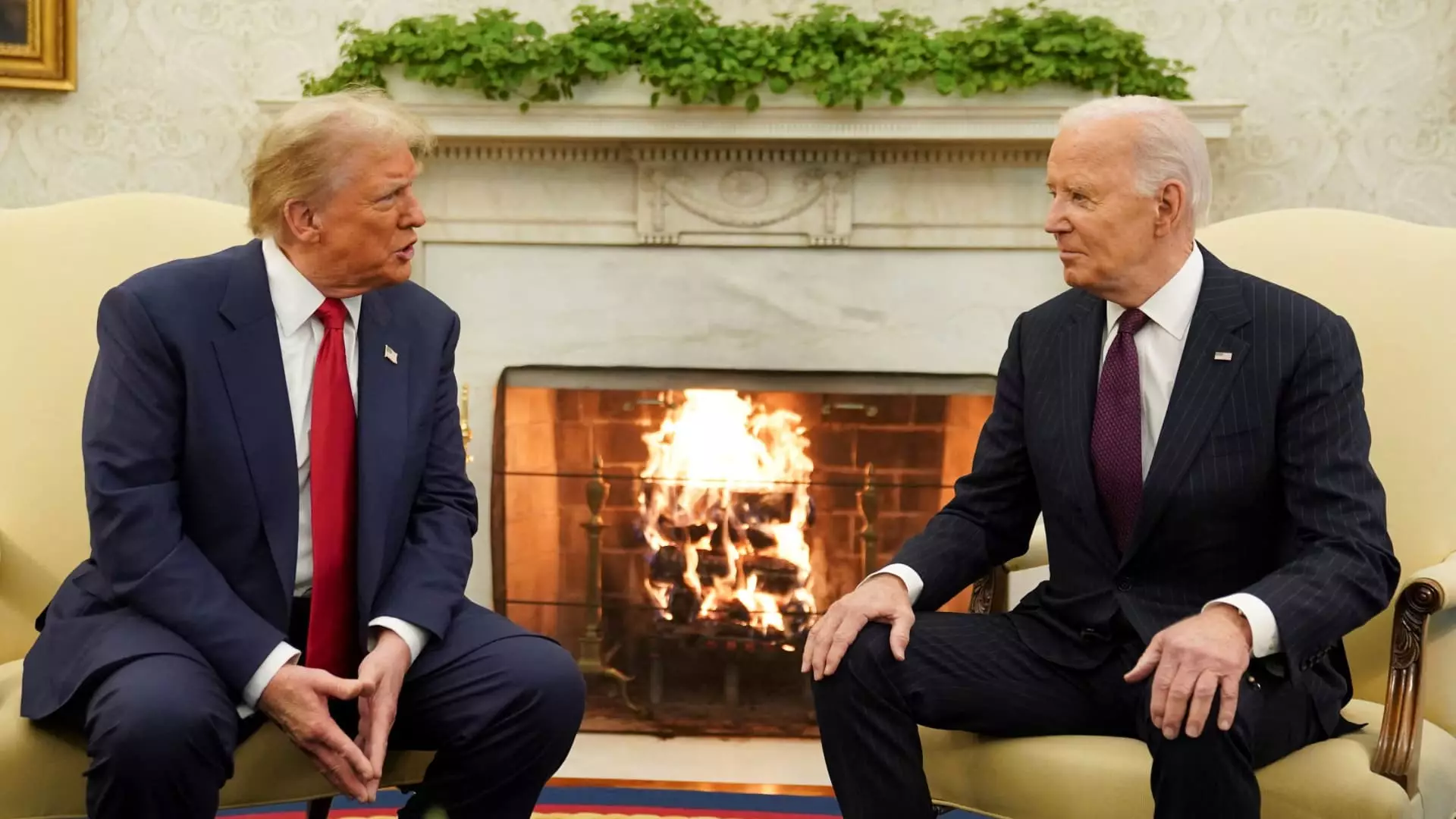In a surprising move, the Trump administration has decided to uphold the strict antitrust guidelines established during President Joe Biden’s tenure. The announcement, made by Federal Trade Commission (FTC) Chairman Andrew Ferguson and communicated through Acting Antitrust Division Chief Omeed Assefi, suggests a nuanced approach to corporate mergers that reflects shifting political priorities. This decision speaks volumes about the ongoing tensions between populist movements and corporate interests in the United States.
The continuation of the Biden-era guidelines for reviewing corporate mergers has significant implications for both the business community and Wall Street. Corporations, anticipating a more permissive regulatory environment, are likely to view this decision as a setback. The established criteria for evaluating mergers—which include thresholds for market concentration and competition—present formidable barriers for companies seeking to consolidate. This stricter framework aims to promote a competitive market landscape, ensuring that mergers do not eliminate key competitors or lead to monopolistic scenarios.
Vice President JD Vance’s influence within the Trump administration cannot be overlooked. Vance’s alignment with Biden’s FTC Chair Lina Khan underscores a rare bipartisan consensus aimed at curbing corporate power. This shift denotes a broader ideological move against the backdrop of growing public dissatisfaction with corporate consolidation and its ramifications on consumer choice and market fairness. By maintaining Biden’s stringent guidelines, Vance and the administration position themselves as defenders of economic equity, even if their affiliation lies traditionally with conservative politics.
Ferguson’s comments shed light on the rationale for this decision. The acknowledgment that changing guidelines frequently would lead to instability resonates with the challenges regulatory bodies face in enforcing policy. The stated concern about resource limitations is crucial; rewriting guidelines after every electoral cycle could result in a perpetual state of flux that diminishes the credibility of enforcement agencies. As Ferguson articulated, the need for stability is paramount for both regulators and businesses that navigate these complex frameworks.
Ultimately, the maintenance of the 2023 guidelines reflects a strategic approach that prioritizes sustained effort over reactive governance. With limited resources, the FTC and DOJ can focus on actual enforcement rather than constantly revisiting the foundational rules that guide their actions. This approach not only stabilizes the regulatory environment but also signals to businesses that compliance with established guidelines will remain a vital part of their operational strategies.
As the political landscape continues to evolve, the decision to uphold these antitrust guidelines signifies a pivotal moment in corporate regulation. It marks a move away from the expectation of deregulation toward a renewed emphasis on protecting market integrity. Consequently, businesses must adapt to an environment where strict scrutiny on mergers and acquisitions is not merely a transitory phase but a lasting element of the regulatory framework.


Leave a Reply